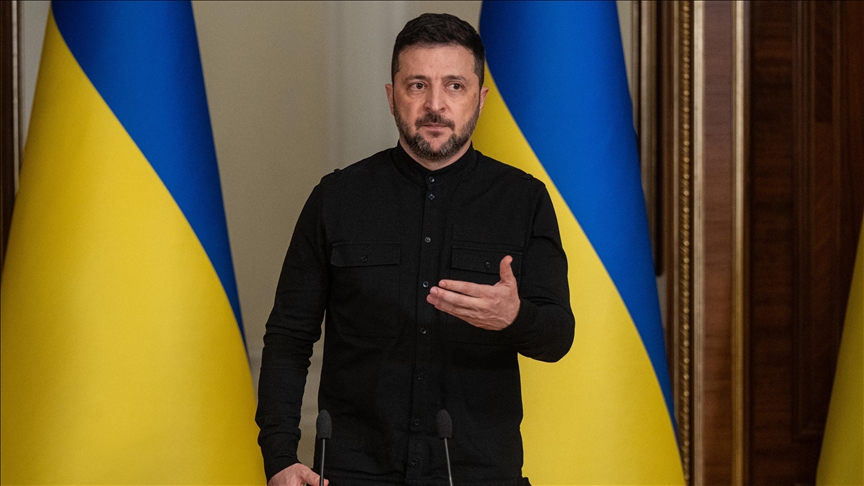Cyprus efforts surprised the EU
European Commission officials, like many people in Turkey, are very surprised. No one can believe what’s happening. Many expected either Turkish Republic of Northern Cyprus (KKTC) President Rauf Denktas to do what he could to prevent the formation of a government, or the Turkish military to apply pressure in order to prevent any reference to the Annan plan.
I was in Brussels to interview Prodi, who is scheduled to make an official visit to Turkey on Thursday. It was obvious how surprised the commission president was when he sat across from me and Zeynel Lule.
He began by saying, "Turkey is constantly surprising us." He said the latest developments in Cyprus would clear the way for Turkey and would make it much easier for them.
Other top officials of the EU Commission echoed the words of Prodi. "Turkey, at last, has started to take the lead, and the environment has improved," one official said. When I asked how he would describe the situation, his reply was interesting.
"The way I would describe it before seeing Ankara’s proposal is as ‘a very important step.’ If the proposal does not include exaggerated claims, then I would describe it as a ‘quake in Cyprus’."
The commission seems to have an added dynamism.
I repeatedly heard the words, "Turkey is bold; no one can stop them now."
However, they are still waiting for the last step, and that’s a solution by May 1.
*
‘Absence of a solution should worry Turkey more than us’
We can confidently say that the latest developments on Cyprus have improved Turkey’s chances for getting a date to start the negotiations at the EU summit in December. There is also the May 1 deadline. Everything depends on what happens before and after that date.
The reason is very simple. A top official of the commission openly said this to me: "We would welcome a solution on the island before May 1; however, the absence of a solution does not bother the EU too much. If there is no solution, southern Cyprus will be admitted to the EU on May 1, and the north will be left out. Then it will be up to Turkey to solve the problem. The north of the island would be depopulated, and Turkey would face more pressure. In summary, we would not be bothered."
There is another reason why finding a solution by May 1 is important for Turkey. If an agreement is signed before May 1, the Annan plan will become a part of the process of Cyprus’s admission to the EU. In other words, the Greek Cypriots won’t be able to withdraw from their commitments. Their hands will be tied, and the implementation of the plan would become the responsibility of the EU.
What will happen if the agreement is left until after May 1?
The Greek Cypriots will have all the cards. They will be able to do whatever they want, because they’ll have veto power. Even a single veto by a member country would be enough to prevent the Annan plan from becoming a part of Cyprus’s accession treaty. In summary, we will be needlessly giving the Greek Cypriots more power.
I can almost hear the questions you are now asking. I’m sure you are asking, "Why should the Greek Cypriots agree to any plan now? They can delay the process as long as they want and try to pass the May 1 deadline."
Would you act differently, if you were a Greek Cypriot?
However, the situation is not that simple.
If the Turkish side plays its cards right, in other words, does not ask for exaggerated concessions, the atmosphere in Brussels shows that the Greek Cypriots will be put under significant pressure. The EU is beginning to act. It will attend the negotiations with a very different mindset. It does not want to leave the Greek Cypriots free to do whatever they want.
Their biggest fear is Denktas being the negotiator. Everyone is waiting to see whether he will follow Ankara’s line or will continue to push his own policies. The news of the firing of Mumtaz Soysal as his advisor was received with interest in Brussels. "Mumtaz Soysal is a very professional man but is not living in this day and age," said a top official, stressing that the EU Commission would attach special importance to the attitude and the statements of U.N. Secretary-General Kofi Annan in this process.
*
Who is supporting the DEP trial?
I heard a rumor in Brussels.
The main reason why Prodi was taking Commissioner Verheugen and top officials to Turkey with him during his visit was that he wanted to attend the DEP trial on Jan. 16 and support former parliamentary deputy Leyla Zana. I asked his top advisors about this allegation.
They laughed.
"The same rumors were going around two months ago. We called on Ankara and told them that we were ready to change the date of our visit. Turkish officials insisted that no change be made. The trial is supposed to take place in Ankara. We will be in Istanbul. It’s not hard to guess who is behind this rumor," an official said, remarking in particular on some Kurdish sources and anti-EU groups in Ankara.
While I was in Brussels, I asked many questions and received many interesting answers. I would like to share them with you in my article tomorrow. I’m expecting you.

